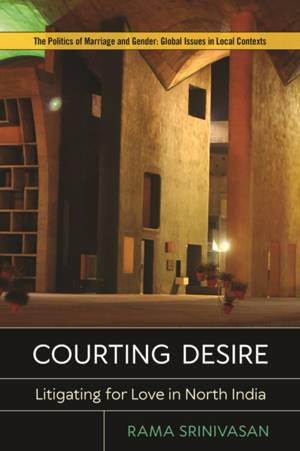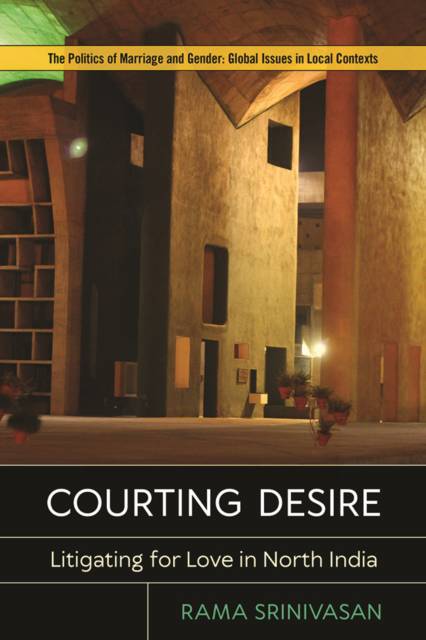
- Afhalen na 1 uur in een winkel met voorraad
- Gratis thuislevering in België vanaf € 30
- Ruim aanbod met 7 miljoen producten
- Afhalen na 1 uur in een winkel met voorraad
- Gratis thuislevering in België vanaf € 30
- Ruim aanbod met 7 miljoen producten
Zoeken
Omschrijving
Inquiries into marital patterns can serve as an effective lens to analyze social structures and material cultures not only on the question of sexuality, but also on the nature of a private citizen's engagement with state and law. Through ethnographic research in courtrooms, community, and kinship spaces, the author outlines the transformations in material culture and political economy that have led to renewed negotiations on the institution of marriage in North India, especially in legal spaces. Tracing organically evolving notions of sexual consent and legal subjectivity, Courting Desire underlines how non-normative decisions regarding marriage become possible in a region otherwise known for high instances of honor killings and rigid kinship structures. Aspirations for consensual relationships have led to a tentative attempt to forge relationships that are non-normative but grudgingly approved after state intervention. The book traces this nascent and under-explored trend in the North Indian landscape.
Specificaties
Betrokkenen
- Auteur(s):
- Uitgeverij:
Inhoud
- Aantal bladzijden:
- 216
- Taal:
- Engels
- Reeks:
Eigenschappen
- Productcode (EAN):
- 9781978803534
- Verschijningsdatum:
- 17/01/2020
- Uitvoering:
- Paperback
- Formaat:
- Trade paperback (VS)
- Afmetingen:
- 150 mm x 229 mm
- Gewicht:
- 294 g

Alleen bij Standaard Boekhandel
+ 113 punten op je klantenkaart van Standaard Boekhandel
Beoordelingen
We publiceren alleen reviews die voldoen aan de voorwaarden voor reviews. Bekijk onze voorwaarden voor reviews.











